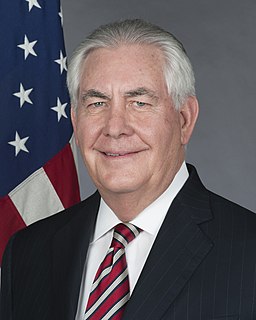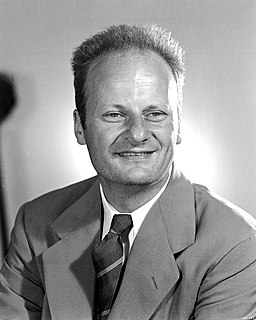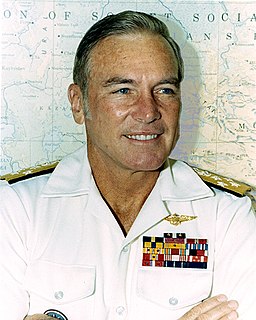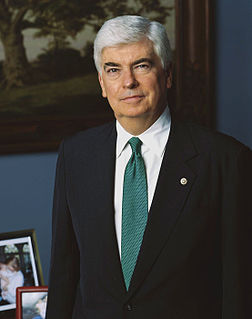A Quote by John F. Kerry
We achieved a deal with the Russians that didn't wind up in two days of strikes that would have sent a, quote, "message," but would not have removed the weapons. We struck a deal to get all of the declared weapons out of Syria. Never before in a conflict has that ever happened, that during the conflict weapons of mass destruction are taken out of the zone of conflict. And thank God we did that, because if we hadn't done that, today ISIL would have those chemical weapons in large parts of the country.
Quote Topics
Achieved
Because
Before
Chemical
Chemical Weapons
Conflict
Country
Days
Deal
Destruction
Did
Done
Ever
Get
God
Happened
Isil
Large
Large Part
Mass
Mass Destruction
Message
Never
Out
Parts
Quote
Russians
Sent
Strikes
Struck
Syria
Taken
Thank
Thank God
Those
Today
Two
Two Days
Up
Weapons
Weapons Of Mass Destruction
Wind
Would
Zone
Related Quotes
And, as a consequence of the pressure that we've applied over the last couple of weeks, we have Syria -- for the first time -- acknowledging that it has chemical weapons, agreeing to join the convention that prohibits the use of chemical weapons, and the Russians -- their primary sponsors -- saying that they will push Syria to get all of their chemical weapons out. The distance that we've traveled over these couple of weeks is remarkable.
I think the Russians need to think more carefully about the commitment they made under the chemical weapons agreements to be the guarantor that these weapons would be seized, they would be removed, they would be destroyed. And since they are Bashar al-Assad's ally, they would have the closest insight as to the compliance.
What is the only provocation that could bring about the use of nuclear weapons? Nuclear weapons. What is the priority target for nuclear weapons? Nuclear weapons. What is the only established defense against nuclear weapons? Nuclear weapons. How do we prevent the use of nuclear weapons? By threatening to use nuclear weapons. And we can't get rid of nuclear weapons, because of nuclear weapons. The intransigence, it seems, is a function of the weapons themselves.
If Saddam's regime and survival are threatened [by invasion], he will have nothing to lose, and may use everything at his disposal... If weapons of mass destruction land on Israeli soil, killing innocent civilians, the experts I have consulted believe Israel will retaliate, and possibly with nuclear weapons... Nor can we rule out the possibility that Saddam would assault American forces with chemical or biological weapons.
At another location, we found barrels of chemical material that was intended for use as biochemical weapons. Everyone talks about there being no weapons of mass destruction in Iraq, but they seem to be referring to completed nuclear bombs, not the many deadly chemical weapons or precursors that Saddam had stockpiled.
This would be a very good moment to institute a call for imposing the Chemical Weapons Convention on the Middle East. The actual Chemical Weapons Convention. Not the version that [Barack] Obama presented in his address to the nation and that media commentators repeat. What he said is that the convention bars the use of chemical weapons. He knows better. And so do the commentators. The Chemical Weapons Convention calls for banning the production, storage and use of chemical weapons, not just the use. So why omit production and storage?
There is no question that Iraq possesses biological and chemical weapons and that he [Saddam Hussein] seeks to acquire additional weapons of mass destruction, including nuclear weapons. That is not in debate. I also agree with President Bush that Saddam Hussein is a threat to peace and must be disarmed, to quote President Bush directly.
Israel produces and stores chemical weapons. So therefore the US will prevent the Chemical Weapons Convention from being imposed on the Middle East. But it's necessary to evade this by misrepresenting the convention, and I think maybe 100 percent of the media, or close to it, go along. But that's a critical issue. Actually, Syria's chemical weapons were developed largely as a deterrent to Israeli nuclear weapons. Also, not mentioned.
I come to this debate, Mr. Speaker, as one at the end of 10 years in office on the Permanent Select Committee on Intelligence, where stopping the proliferation of weapons of mass destruction was one of my top priorities. I applaud the President on focusing on this issue and on taking the lead to disarm Saddam Hussein... Others have talked about this threat that is posed by Saddam Hussein. Yes, he has chemical weapons, he has biological weapons, he is trying to get nuclear weapons.
We stopped the fighting in 1991 on an agreement that Iraq would take steps to assure the world that it would not engage in further aggression and that it would destroy its weapons of mass destruction. It has refused to take those steps. That refusal constitutes a breach of the armistice which renders it void and justifies resumption of the armed conflict.
































